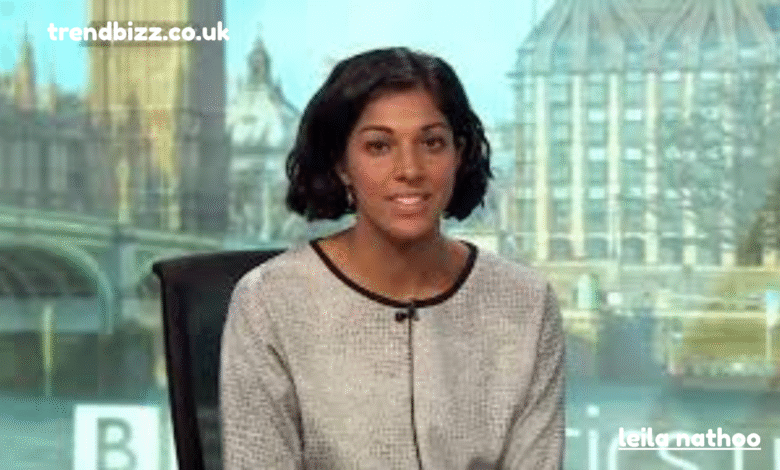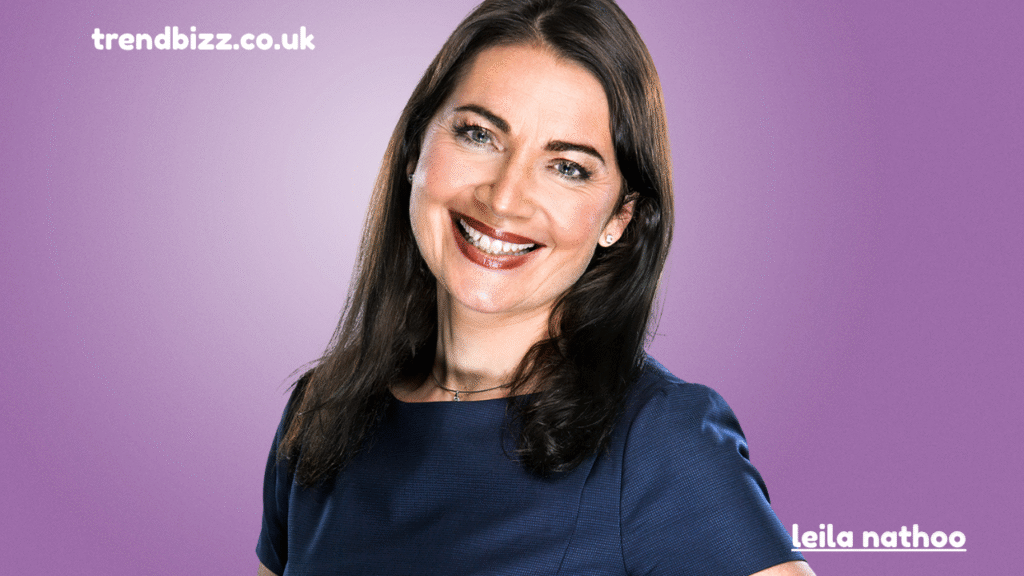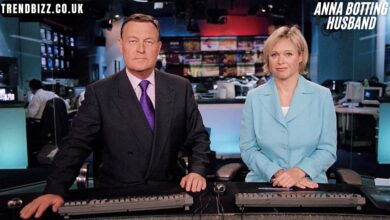Leila Nathoo – BBC Political Correspondent & Journalist Overview

Leila Nathoo is one of the most respected and recognizable faces in British political journalism. As a BBC Political Correspondent, she has established herself as a credible, professional, and insightful voice in covering UK and international politics. Over the years, Leila has become well-known for her balanced reporting, in-depth analysis, and calm presence on screen during high-pressure political events. This article explores her journalism career, educational background, work at the BBC, media influence, and more — offering a complete picture of who Leila Nathoo is.
Early Life and Education of Leila Nathoo

Leila Nathoo was born and raised in the United Kingdom, though specific details about her date of birth and family background have been kept private. Like many journalists in the BBC network, Leila has maintained a discreet approach to her personal life, focusing instead on her professional work.
From a young age, she showed a keen interest in current affairs and global issues. This passion led her to pursue higher education that would align with her journalistic aspirations. Leila attended a reputable university in the UK, where she specialized in political science and international relations—fields that later shaped her reporting style. Her academic journey helped her build the foundation for understanding complex political structures, policymaking, and the nuances of media communication.
Career Beginnings and Entry into the BBC

Leila Nathoo began her journalism career in the early 2000s, starting with smaller assignments and news reporting tasks before joining the BBC. Her sharp understanding of political systems and ability to interpret complicated policy matters into digestible news for the audience made her a valuable addition to the network.
At the BBC, she started as a reporter and news correspondent, gradually climbing the ranks due to her dedication and professionalism. Over the years, Leila has covered multiple high-profile stories related to British politics, general elections, international diplomacy, and government affairs.
Her assignments have taken her beyond Westminster, giving her exposure to global political developments and how they connect with the UK’s domestic policies. Through consistent on-ground reporting, she gained recognition for being thorough and unbiased—qualities that are highly valued in journalism.
Leila Nathoo as a BBC Political Correspondent
Today, Leila Nathoo serves as one of the BBC’s Political Correspondents, contributing regularly to major BBC outlets such as BBC News Channel, BBC One, and BBC Parliament. Her work primarily focuses on political reporting, where she interprets the decisions, debates, and dynamics within the British government.
Her role requires in-depth knowledge of parliamentary procedures, political parties, and public policies. Leila often reports live from Westminster, analyzing crucial issues such as leadership changes, party conferences, government reforms, and international relations.
One of the hallmarks of her journalism style is clarity—she simplifies complex political stories for a wide audience without losing accuracy or context. Whether she’s covering breaking news or providing analysis for a developing political story, Leila Nathoo maintains a calm, authoritative, and well-researched tone that resonates with viewers.
Reporting Style and Professional Strengths
Leila Nathoo stands out for her objective and clear reporting style. In an era where journalism can sometimes blur the lines between opinion and reporting, she continues to uphold the BBC’s values of impartiality and fact-based storytelling.
Her ability to stay composed during live broadcasts and political debates has earned her credibility. Viewers often note her professionalism and how she avoids sensationalism while still keeping her reporting engaging. Leila’s interviews are known for being respectful yet pointed, ensuring that public figures are held accountable without confrontation.
She’s also active in covering international political events that affect the UK, such as Brexit negotiations, global summits, and foreign policy developments. This international perspective adds depth to her reports and reinforces her reputation as a well-rounded journalist.
Challenges and Experiences in Political Journalism
Political journalism is among the most demanding branches of media work, and Leila Nathoo’s journey is no exception. The constant need for accuracy, the pressure of deadlines, and the responsibility of representing facts correctly can be challenging.
Despite these challenges, she has maintained a consistent level of professionalism. Covering sensitive topics like elections, leadership crises, and parliamentary controversies requires not only factual precision but also emotional restraint. Leila’s ability to balance these demands has been a major factor in her long-standing success at the BBC.
As a female journalist in political media, she also represents progress in a field historically dominated by men. Her success story encourages more women to pursue political reporting and leadership positions in media.
Public Perception and Influence
Leila Nathoo has become a trusted face for many BBC viewers who rely on accurate political updates. Her calm demeanor, articulate speech, and insightful commentary make her stand out among the BBC’s team of correspondents.
Although she does not actively seek celebrity status or public attention, her growing influence within the journalism community is undeniable. Viewers appreciate her straightforward explanations and the depth of her understanding of UK politics.
She has also gained respect on social media platforms, where clips of her BBC reports are often shared for their clarity and reliability. However, Leila herself maintains a low online profile, reflecting her focus on journalism over personal publicity.
Personal Life and Privacy
Leila Nathoo’s personal life remains private, as she chooses to keep details about her family, relationships, and personal preferences away from the media. This decision aligns with the professional ethics many journalists follow to maintain impartiality and avoid public distraction from their reporting work.
It is known that she enjoys exploring cultural and political developments outside her newsroom duties. However, Leila rarely discusses personal interests in interviews or public appearances, reinforcing her identity as a serious and career-focused journalist.
Contribution to Modern Political Journalism
Leila Nathoo’s contribution to modern journalism is significant, particularly in how she bridges the gap between complex politics and everyday audiences. Her ability to contextualize parliamentary debates, policy changes, and election coverage helps the public make sense of political events that shape their lives.
As the world faces increasing political polarization, journalists like Leila Nathoo serve as vital mediators between governments and citizens. Her balanced reporting ensures that BBC audiences remain informed without being swayed by bias or misinformation.
She has also inspired new journalists who admire her discipline, intellect, and dedication to truth. For many, her career serves as a model of what modern political reporting should look like—informative, accurate, and respectful.
Leila Nathoo’s Media Presence and Recognition
While Leila does not chase public fame, her consistent appearances on BBC television and radio have made her a well-known name. Viewers recognize her for her insightful reporting during key moments like UK elections, Prime Minister’s Questions, and Brexit developments.
Her calm, professional presence during breaking political news has made her a familiar and trusted figure in British households. Colleagues within the BBC and across the media landscape often commend her for her integrity and steady growth in the industry.
Though she has not publicly received major journalism awards, her reputation and professional credibility stand as strong recognition in themselves.
Future Outlook and Career Growth
Leila Nathoo’s future in journalism looks promising. With her experience, she is likely to continue playing a key role in political reporting and analysis within the BBC. She may also expand into broader media roles such as hosting current affairs programs or contributing to in-depth political documentaries.
Given her deep understanding of political systems, she could also become a mentor or educator for aspiring journalists in the future. Whether in front of the camera or behind the scenes, her contribution to political media is expected to remain influential.
Conclusion
Leila Nathoo represents the ideal blend of intellect, professionalism, and journalistic ethics. From her early education to her role as a BBC Political Correspondent, she has demonstrated that integrity and clarity can coexist in modern journalism.
Her reporting continues to inform millions, offering a reliable perspective on the fast-changing political world. In an era of media noise and misinformation, Leila Nathoo stands as a voice of balance, truth, and trust — qualities that define the very essence of responsible journalism.



